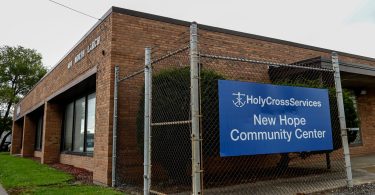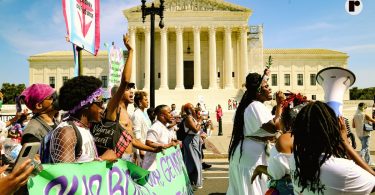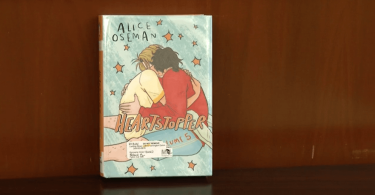For more than half a century, Outfest: The LGBTQ Film Festival has been a major cultural institution in the LGBTQ community in Los Angeles. However, Outfest has disappeared without even a farewell or a “thank you.” The community learned of the organization’s implosion via a recent article in the “Los Angeles Times,” which announced UCLA’s “Queer Rhapsody,” a de facto L.A. LGBTQ film festival that seemingly came out of nowhere, had no LGBTQ community input, and was programmed to occur at five non-LGBTQ spaces across the city.
Three weeks ago, I conducted a quick survey of 14 gay/queer people in L.A. who are culturally and politically attuned to what is happening in the LGBTQ community. The disappearance of Outfest was shocking news to all of them, who heard it from me for the first time.
I have written about the problems numerous times in various outlets. Be patient with me as I repeat the reasons again for the sake of newcomers and puja, a Sanskrit-derived word meaning “remember.”
The dominant political ideology in the LGBTQ community in L.A. and throughout the U.S. is assimilation, sometimes called “hetero imitation,” practiced particularly by the neo-homophile (1985-2010) and parts of the queer generations (2010-present). If assimilation is taken to its logical conclusion, that ideology will gradually and imperceptibly result in the disappearance of the LGBTQ community and the dilution of identity. It is happening all around us, with Outfest as the most recent example.
The paradox is that while other groups are desperately trying to create real community, where people assume responsibility for each other, LGBTQ people are blindly and unconsciously letting their community slip through their fingers.
Since about 1985, beginning with the AIDS pandemic, the evolution of the LGBTQ community has been hijacked by an elite group. This elite capture has led to a radical change in the community’s power structure, shifting from a grassroots, community-based effort where LGBTQ people were creative participants to a situation where they have become apathetic and disengaged spectators. Elite capture represents a hierarchy and values based on wealth, elite education, race, and certain sex and gender determinants — with lots of empty words and tokenism.
Recently, outstanding investigative reporting by the “New York Times” revealed how elite capture looks day-to-day at GLAAD, an important national LGBTQ media advocacy organization. This elite capture, to a greater or lesser degree, is happening throughout LGBTQ communities.
As a result of elite capture, gay-centered journalism has largely disappeared. LGBTQ news sites on social media “curate” news, often at a shallow and sensational level. Local news, like Outfest’s disappearance, has vanished, intellectually and spiritually impoverishing all of us. Incredibly, no investigative reporting occurs anywhere by the LGBTQ media, depriving LGBTQ people of critically vital information about what’s really happening in their communities. This is a historically singular type of new technology censorship.
Gay men and lesbians over 55 have disappeared at a time when they should be assuming the role of tribal elders, providing community stability, tending to our spiritual well-being, and transmitting lived learning and tribal history to our youth.
A shorter, different version of this article, titled “Outfest: Call Home,” about Outfest’s mysterious disappearance, ran a week ago on Danny Battista’s and my MailChimp site called “Gay Tribal Elder,” which has been published almost weekly since 2015. Astonishingly, of the 200 articles ever published there, this one garnered the most responses from readers. Intelligent, insightful community feedback was received, which appears below without attribution since there was not enough time in the day to track down all the senders for permission.
One individual keenly observed that it was interesting Ms. Ha Duong of the UCLA Film and Television Archive, and a central organizer of “Queer Rhapsody,” talked about the importance of the LGBTQ community and then listed five non-LGBTQ spaces where the films would be shown. Does this sound like hypocrisy to you? For more than half a century in LGBTQ cultural life in Los Angeles, Outfest played a unifying community role of great historical and political importance. Does screening “Queer Rhapsody” in five non-LGBTQ film sites sound like more disunity and fragmentation to you?
Another reader linked me to two important articles that suggest labor union organizing by Outfest workers was involved somehow in its demise. One article in the Hollywood Reporter (Sept. 26, 2023) by Mia Galuppo reported that 11 Outfest staff members announced plans to unionize with the Communication Workers of America Local 9003 as Queer Filmworkers United. QFU requested that the Outfest board voluntarily agree to the unionization so that a vote supervised by the National Labor Relations Board would not be necessary.
A second article, titled “Outfest Board to Voluntarily Recognize New Union After Laying Off 5 Employees,” by Brian Welk appeared on *IndieWire* (Sept. 29, 2023.) The five laid off were union organizers, a common anti-union tool used by union busters. The laid-off workers were Martine McDonald, director of creative development, the only Black Outfest staff member; Gabi Grossman, senior programming coordinator, the only trans worker; Alex Gooter, development coordinator; Hanson Bursic, marketing manager; and Daniel Crooke, senior programmer.
CWA and QFU stated that the union agreement was not valid until the board signed the QFU mission statement, which, at that time, had not been done. CWA filed a labor grievance with the NLRB in this matter.
The Outfest board said the layoffs were planned before the union organizing began. The board had been planning to downsize the organization for financial reasons. In all fairness to the board, the COVID-19 pandemic has been devastating to the income of nonprofit cultural organizations. The important questions are: Why was the LGBTQ community not informed about this crisis? Does the leadership of LGBTQ organizations, characterized as quasi-corporate and under the control of elite capture, lack the skills, experience, and community consciousness needed to sustain those groups, such as Outfest, that started out as grassroots, community-based endeavors?
Additional reader feedback stated that Outfest folded due to a power struggle between the board and its executive director, David Navarro. The quick progression of events in September 2023 does make a person wonder and question. On Sept. 26, 2023, the 11 workers petitioned the board to unionize; on Sept. 28, 2023, the board seemingly agreed to the union provisionally but not legally; then, on Sept. 28, 2023, Executive Director Navarro announced “an unanticipated leave of absence for at least 45 days”; then board member Zachery Alexander Stephens, declaring how much the board loves unions, resigned from the board and was appointed acting executive director; and then silence. Anyone who knows about nonprofit governance knows the board legally has the apex power, and the executive director serves at the discretion of the board. Was it a power struggle that wiped out one of the major LGBTQ cultural institutions in Los Angeles without a bang or a whimper?
One of the items that caught my eye was the admission by the Outfest board president, Dr. Nii-Quaterlai Quartey, that the board was having difficulty reaching a “quorum,” the minimum number of board members needed to legally transact its affairs. This is sometimes a dodge, or it more likely meant the organization was divided and in big trouble. Why was there no local community news about this precarious situation in the LGBTQ community in Los Angeles?
UCLA, which helped to feed my intellectual growth in a doctoral program in 1968 and 1969, has grown into an elitist institution and is extremely wealthy. Does the fact that the UCLA Film and Television Archive is now programming “Queer Rhapsody,” the de facto LGBTQ film festival in Los Angeles at five non-LGBTQ locations without any community involvement, mean that assimilationist ideology and elite capture have taken over another community institution, tearing it from its community roots? Anything torn from its roots will wither and die.
Don Kilhefner, Ph.D., 86, is a pioneer gay liberationist, a founder of the LA LGBT Center, the Van Ness Recovery House, and the international Radical Faeries movement. He now spends his time working, writing, eldering, and dancing to dirty music.







